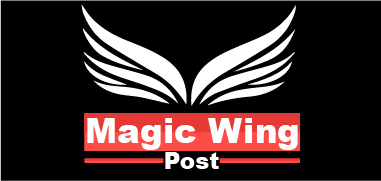Businesses wishing to increase the range of tobacco products they provide might find great success in the backwoods wholesale market. Still, navigating this sector well and using a planned approach is necessary for effective procurement. Businesses in the wilderness wholesale sector may benefit from the following advice as they make well-informed judgments and develop successful collaborations.
Understanding of the Backwoods Wholesale
A wide range of goods, each with distinctive qualities and attractiveness of its own, define the backwoods wholesale market. Businesses need to be well aware of both the unique needs of their market and their target audience. They may choose the appropriate items and get a competitive advantage with this information. An assortment of providers, each with unique qualities and capacities, is likewise a part of the market. Organizations have to carry out exhaustive investigations to find dependable vendors that can continually provide superior goods at affordable costs.
In order to succeed in the long run in the rural wholesale market, one must build and maintain solid connections with suppliers. In their dealings with suppliers, businesses need to place a high priority on open communication, honesty, and respect. In order to keep updated about industry trends, new product releases, and prospective issues, firms should communicate regularly. They may also respond quickly and efficiently to any problems or complaints as a result. Develop mutually advantageous connections and guarantee a consistent supply of wilderness goods by cultivating a collaborative approach and building trust.
Backwoods Wholesale and Quality Assurance
When purchasing backwoods wholesale from the wholesale market, quality assurance is very important. To guarantee the highest standards are met by the items they get, businesses should have strict quality control procedures in place. Authenticity checks, quality and package inspections, and random sampling for further analysis are all part of this process. Businesses may lower their chances of acquiring inferior or fake goods considerably by working with reliable suppliers that follow tight quality control procedures.
In the wholesale rural market, pricing is quite important. Companies should compare price structures to industry standards and thoroughly assess the various pricing structures provided by suppliers. Examining the total value offer necessitates taking into account elements like product quality, minimum purchase quantities, shipping expenses, and conditions of payment. Additionally, in order to get the best terms and pricing from suppliers, businesses should be ready to bargain. Knowing one’s own requirements and interests clearly and being prepared to make concessions and come to mutually acceptable agreements are prerequisites for effective negotiating.
:Backwoods Wholesale – Inventory and Logistics
In the rural wholesale market, smooth operations depend on effective inventory management and logistics. To manage product flow, keep an eye on inventory levels, and forecast demand swings, businesses need build reliable systems. They may guarantee that they have enough inventory to satisfy client requests and prevent stockouts by doing this. Businesses may shorten lead times and optimize the supply chain by collaborating with reputable logistics companies that manage the storage and shipping of their goods.
Conclusion
Regulations, trends, and new items are always appearing in the backwoods wholesale industry, which is always changing. To remain competitive and seize new possibilities, businesses need to keep up to date on these advancements. Businesses may remain up to date on the newest market information by subscribing to pertinent periodicals, attending industry trade exhibitions, and networking with other experts. In the competitive rural wholesale industry, companies may stand out from the competition by embracing innovation and adjusting to changing customer tastes.






